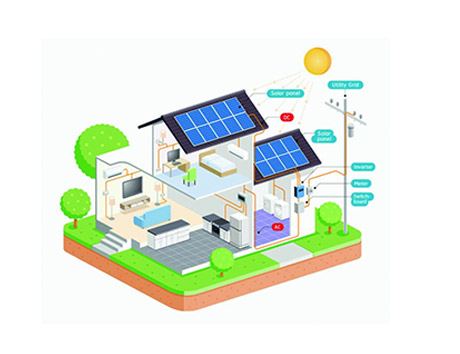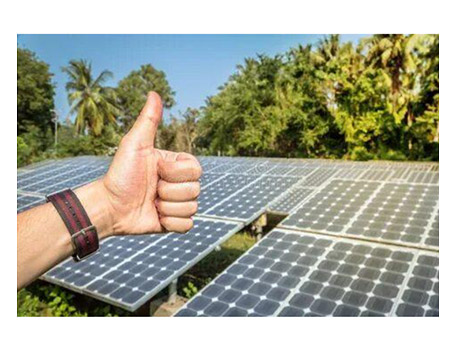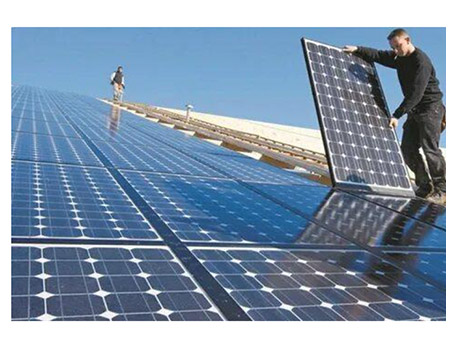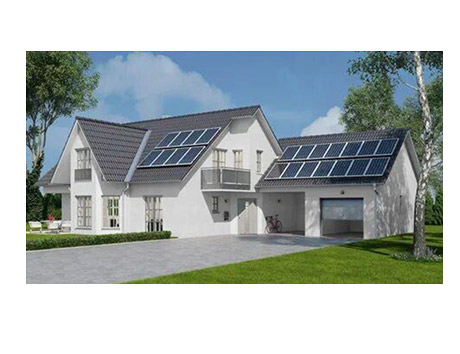Solar panel installation for Web
Introduction of Solar Panels
Solar Panels harness the power of sunlight to generate electricity. These panels, equipped with photovoltaic cells, convert sunlight into direct current (DC) electricity through the photovoltaic effect.
An inverter then converts DC into alternating current (AC) electricity for household use. Excess energy can be stored in batteries or fed back into the grid, promoting energy efficiency and potentially reducing electricity bills through net metering. Solar Panels offer a sustainable, abundant energy source, contributing to reduced carbon emissions.

Advantages of Solar Panels
Distributed solar systems further enhance grid stability, easing strain on centralized infrastructure. Overall, Solar Panels deliver environmental, economic, and societal benefits.

Choosing the Right Solar Panels
Selecting the right Solar Panels involves careful consideration of factors such as energy needs, roof space, budget, and quality. High-efficiency panels maximize energy production and ensure long-term reliability. Understanding local regulations and environmental impacts is essential for informed decisions aligned with sustainability goals. Consulting solar energy professionals can provide valuable guidance, ensuring the selection of the most suitable Solar Panels for individual needs and circumstances.

Ideal number of Solar Panels
Discovering the ideal number of Solar Panels for your home is a crucial step in embracing sustainable energy. The quantity of Solar Panels installed directly impacts the energy output for your residence. Determining the requisite number hinges upon factors such as your household’s energy consumption, occupancy, and property dimensions. For smaller residences, a 1kW system suffices, necessitating roof space for 8+ square metres of Solar Panels. Conversely, larger energy demands may require a 4kW system, necessitating 25+ square metres of roof space.
Inquiry regarding planning permission for solar panel installation
Conclusion
Solar energy’s rise in popularity stems from its dual appeal of environmental sustainability and cost-effectiveness. As awareness of climate change grows, more individuals and businesses seek eco-friendly alternatives, propelling solar energy into the mainstream. Additionally, the significant savings on electricity bills offered by Solar Panels make them an attractive investment. As technology advances and costs decrease, solar energy becomes increasingly accessible to a wider audience. With its potential to revolutionize the energy landscape, solar power stands as a beacon of hope for a cleaner, more sustainable future, offering both environmental benefits and substantial financial savings.
Get Free Solar Panel Installation Quotes. Should you be considering investing in solar energy, LT Smart Company can assist you in providing quotes. Simply take a moment to complete our online form, and you’ll be promptly contacted by us.
FAQ:
Is worth to invest in Solar Panels ?
Solar Panels can provide significant long-term savings on electricity bills and offer environmental benefits. However, the return on investment depends on factors like location, energy usage, and available incentives
Is solar panel energy only beneficial in summer ?
Solar panel energy isn’t just advantageous in UK summers. While they yield more in summer due to longer days and stronger sunlight, they work year-round. They generate electricity on cloudy days and in winter, contributing consistently. Surplus summer energy can be stored or fed back to the grid, offering benefits in less sunny months.
How many Solar Panels will my home need ?
The number of Solar Panels your home needs depends on factors like energy consumption, roof space, panel efficiency, and sunlight availability. Consulting with a solar energy professional can provide a personalized recommendation based on your specific requirements.
Why are inverters and batteries necessary in a solar system ?
In a solar system, inverters are needed to convert the direct current (DC) electricity generated by Solar Panels into alternating current (AC) electricity used in most homes and businesses. Batteries are used to store excess energy generated by the Solar Panels for use during periods when sunlight is not available, such as at night or during cloudy weather. This ensures a continuous and reliable power supply from solar energy.
Do Solar Panels require maintenance ?
Solar Panels require minimal maintenance, typically limited to occasional cleaning to remove dirt and debris. Regular inspections by a professional can ensure optimal performance.
Do I need planning permission for Solar Panels ?
In England, most residential solar panel installations don’t require planning permission as long as they meet certain criteria, like not protruding more than 200mm from the roof slope. However, exceptions exist for listed buildings or properties in conservation areas. Check local regulations or consult a professional for specifics.


